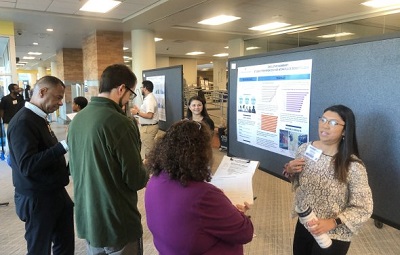Impact of Positive Psychology Approaches over Traditional Approaches with a Reliance on Technology on College Students
Description/Abstract/Artist Statement
Over the past decade, over 40% of college students have sought mental health treatment on campus. However, the demand for treatment has not increased the expansion of many college campus counseling centers. Thus, there is a need to find alternative methods to meet the mental health needs of college students. Positive psychology is a strengths-based approach that focuses on helping individuals identify their meaning and purpose in life. Developments in positive psychology and technology have broadened allowing individuals to readily access therapy through digital mental health applications (DMHA). Positive psychology apps appear to promote mental health and have been found to be effective approaches to promote general well-being and mental health awareness. On the other hand, there are some individuals who still prefer the traditional delivery of in-person therapy. This quantitative study examines the effectiveness of positive psychology provided through DMHAs in comparison to traditional therapy offered in-person. This study will recruit college students between the ages of 18 and 25 who have experienced symptoms of anxiety or depression and who have previously participated in traditional therapy. Students will complete a baseline mental health screener and questionnaire to rate their experiences in traditional therapy. Students will be provided with information on DMHA programs (Mindshift, Happify, and Headspace). Following six-weeks of participation in the DMHA, students will be administered another mental health screener and questionnaire to rate their experience using DMHAs. The results of this study will be used to learn more about preferred therapy delivery services for college students.
Faculty Advisor/Mentor
Dr. Sheryise Williams
Faculty Advisor/Mentor Department
TRiO McNair Scholars Program
College Affiliation
College of Education & Professional Studies (Darden)
Presentation Type
Poster
Disciplines
Clinical Psychology | Psychology | Social and Behavioral Sciences
Session Title
Poster Session
Location
Learning Commons Lobby @ Perry Library
Start Date
3-30-2024 8:30 AM
End Date
3-30-2024 10:00 AM
Impact of Positive Psychology Approaches over Traditional Approaches with a Reliance on Technology on College Students
Learning Commons Lobby @ Perry Library
Over the past decade, over 40% of college students have sought mental health treatment on campus. However, the demand for treatment has not increased the expansion of many college campus counseling centers. Thus, there is a need to find alternative methods to meet the mental health needs of college students. Positive psychology is a strengths-based approach that focuses on helping individuals identify their meaning and purpose in life. Developments in positive psychology and technology have broadened allowing individuals to readily access therapy through digital mental health applications (DMHA). Positive psychology apps appear to promote mental health and have been found to be effective approaches to promote general well-being and mental health awareness. On the other hand, there are some individuals who still prefer the traditional delivery of in-person therapy. This quantitative study examines the effectiveness of positive psychology provided through DMHAs in comparison to traditional therapy offered in-person. This study will recruit college students between the ages of 18 and 25 who have experienced symptoms of anxiety or depression and who have previously participated in traditional therapy. Students will complete a baseline mental health screener and questionnaire to rate their experiences in traditional therapy. Students will be provided with information on DMHA programs (Mindshift, Happify, and Headspace). Following six-weeks of participation in the DMHA, students will be administered another mental health screener and questionnaire to rate their experience using DMHAs. The results of this study will be used to learn more about preferred therapy delivery services for college students.


